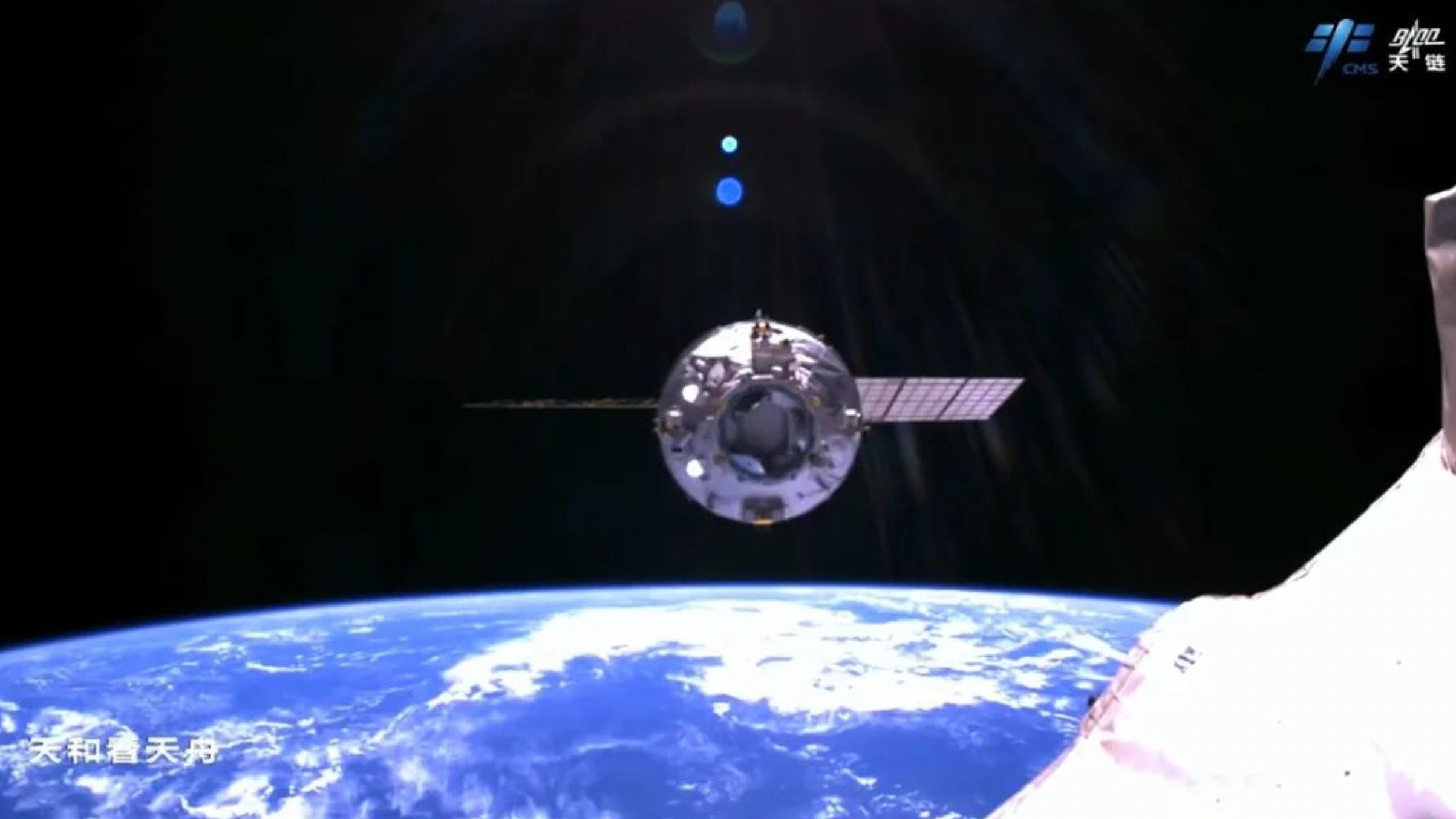China's Tianzhou 6 cargo spacecraft burns up in Earth's atmosphere
The space freighter released a cubesat shortly before meeting its fiery fate.

China deorbited its robotic Tianzhou 6 cargo spacecraft today (Jan. 19) after it completed its mission serving the country's space station.
The 35-foot-long (10.6 meters) Tianzhou 6 reentered over an area of ocean, likely the South Pacific — an area frequently used by countries for deorbiting spacecraft due to its remoteness — today at 7:37 a.m. EST (1237 GMT; 8:37 p.m. Beijing time), China's human spaceflight agency announced.
On Thursday (Jan. 18), Tianzhou 6 released Dalian-1, a small satellite developed by the Dalian University of Technology. The spacecraft has remote sensing capabilities and carries a solar sail, according to the university.
Related: China's space station, Tiangong: A complete guide
Tianzhou 6 launched atop a Long March 7 rocket on May 10, 2023, carrying supplies, propellant, experiments and other cargo to China's Tiangong space station.
It was the fifth cargo mission to Tiangong and the first involving the improved version of the Tianzhou freighter. This new vehicle can accommodate about 1,100 more pounds (500 kilograms) of payload than previous iterations of the spacecraft.
China launched its latest cargo supply mission, Tianzhou 7, on Wednesday (Jan. 17). Tianzhou 6 undocked from Tiangong a week earlier to make way for the arrival of the incoming Tianzhou 7 spacecraft.
Get the Space.com Newsletter
Breaking space news, the latest updates on rocket launches, skywatching events and more!
Tianzhou 7 delivered supplies for the ongoing Shenzhou 17 crewed mission and more besides. This year, China will launch two crewed missions to Tiangong — Shenzhou 18 and 19 — and another Tianzhou supply mission, expected to fly around August.
China plans to launch Tianzhou spacecraft every eight months as part of plans to keep Tiangong constantly occupied for at least 10 years.
Join our Space Forums to keep talking space on the latest missions, night sky and more! And if you have a news tip, correction or comment, let us know at: community@space.com.

Andrew is a freelance space journalist with a focus on reporting on China's rapidly growing space sector. He began writing for Space.com in 2019 and writes for SpaceNews, IEEE Spectrum, National Geographic, Sky & Telescope, New Scientist and others. Andrew first caught the space bug when, as a youngster, he saw Voyager images of other worlds in our solar system for the first time. Away from space, Andrew enjoys trail running in the forests of Finland. You can follow him on Twitter @AJ_FI.









